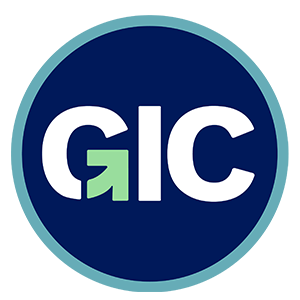Accessibility Alert: Alt Text Shortage!
Last updated on July 17th, 2025
Today we’re sounding the alarm:
We need your help to meet the pending accessibility deadline!

The Challenge at Hand
A quick reminder: April 24, 2026 is the deadline for public entities to comply with the new digital accessibility requirements under Title II of the Americans with Disabilities Act. That means that by that date, anything that any government or civic organization has posted online must be accessible to people with disabilities to the WCAG 2.1 AA standard.
The GIC is working behind the scenes to upgrade coded accessibility issues, but we are asking agencies to begin taking their own proactive steps to reach deadline compliance.
We will be offering a series of solutions in this blog, and we begin with an important one: Alt Text.
Why Alt Text Matters
Accessibility compliance requires that every image on a website has alt text entered, so screen reading software can describe the images to those who have visual challenges. Unfortunately, there are many state government websites whose images include no alt text at all. It’s one of the biggest single accessibility issues that agencies can address on their own.
It’s worth pointing out that the Lighthouse system does not permit the publishing of any page or post in which the alt text has not been entered. This is a standard that web editors can expect to encounter moving forward.


Our Request
We are asking agencies to begin reviewing their own site images immediately to make sure the alt text is entered in both the imagery as well as in the WordPress media library.
Writer’s Block
Entering alt text can actually stop good writers in their tracks. Describing an image to someone who can’t see it can be trickier than it would seem, because it’s something most people don’t often do. Some images are quite straightforward to describe, but others may be abstract stock images, intended more as a decoration than something to be thought of in its literal context. That unexpected struggle can scare people away from even trying. But it’s time to try again, and we’re going to help!
Here are some tips from Harvard’s Digital Accessibility project:
- Keep it short, usually 1-2 sentences. Don’t overthink it.
- Consider key elements of why you chose this image, instead of describing every little detail.
- No need to say “image of” or “picture of.”
- But, do say if it’s a logo, illustration, painting, or cartoon.
- Don’t duplicate text that’s adjacent in the document or website.
- End the alt text sentence with a period.
Ideally, your alt text should fall below the 125 character mark to comply with the greatest number of screen readers.
But My Site Has SOOOOO Many Images
Unfortunately, that’s all the more reason your site is at risk for being flagged for accessibility violations if you are missing alt text.
The best advice we can give on that front is to divide and conquer. Take the number of total web pages your site has and divide it by the number of months we have before the 4/24/26 deadline. (About 9 as of this blog post!) That’s your monthly must-review-pages list. Try to enlist other web contributors, if possible, to exceed that pace.
We can’t enter your alt text for you, but if you need advice on how best to attack your own website, we’re always here for you at the GIC.
If you have further questions about accessibility, please reach out to the Delaware Development Disabilities Council.

Read more articles about: Accessibility, Announcement, CLF, Content Strategy, Data, Design, Lighthouse, User Research.
Subscribe Now:
Follow our blog for the latest GIC updates, accessibility tips, and dev trends affecting Delaware agency websites.
Browse by Topic:
- Accessibility
- Accessibility Newsletter
- Announcement
- CLF
- Content Strategy
- Data
- Design
- Lighthouse
- Livestream Production
- Uncategorized
- User Research
- Video Production
Browse by Date:
- February 2026
- January 2026
- December 2025
- November 2025
- October 2025
- September 2025
- August 2025
- July 2025
- June 2025
- May 2025
- April 2025
- March 2025
- February 2025
- January 2025
- December 2024
- November 2024
- October 2024
- September 2024
- August 2024
- July 2024
- June 2024
Feedback:
Have an idea for a blog post or feedback on an existing post? We would love to hear from you!





